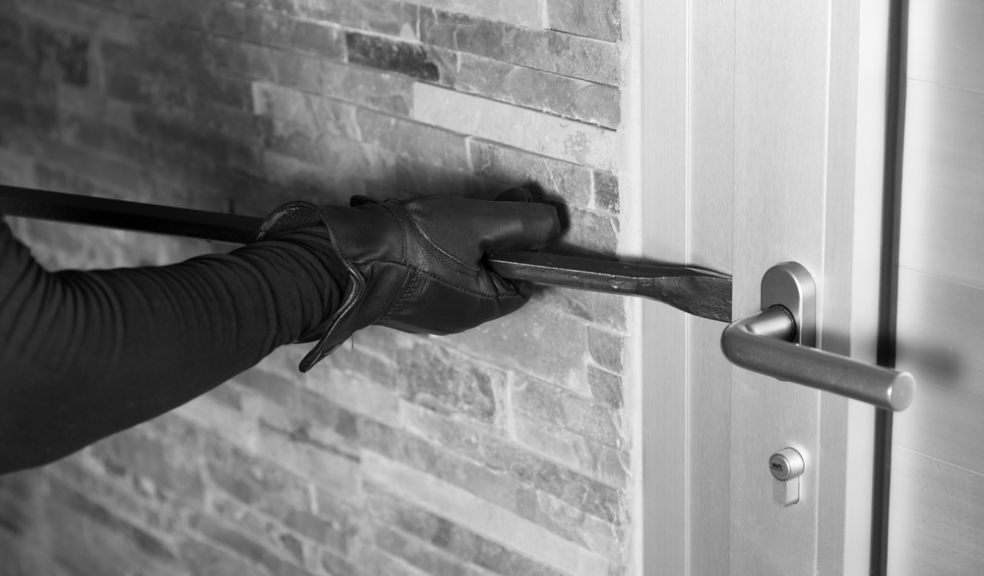
The impact of burglary on children
Children whose homes have been burgled are more likely to struggle at school and have trouble sleeping, according to new research from independent charity Victim Support and home security specialist ADT.
Nearly 300,000 children are believed to be the victims of break-ins every year in England and Wales.2
The first major survey into the impact of burglary found that two thirds (63 per cent) of parents who had children living at home when they were burgled support the partnerships call for tougher sentences for burglars who target family homes.
A quarter of parents (27 per cent) said that their child’s sleep was affected following a break-in at their home, while one in ten (11 per cent) parents reported it had a negative impact on their child’s performance at school.
A third (32 per cent) of parents found their children’s sense of personal safety and well-being affected and one in ten (10 per cent) reported an increase in their child’s bed-wetting. Parents reported their children were affected even if they were not at home at the time.
Of the adults whose homes were burgled as children, more than a third (37 per cent) still feel that the experience affects them in adulthood. One in three (35 per cent) sleep with the light on and 44 per cent now prefer to sleep with someone else in the house.
Two in five parents (39 per cent) say that their children needed emotional or psychological support following the burglary. But a separate survey of young burglary victims carried out by Victim Support and ADT suggests that the impact on children may often be greater than even their parents realise.
Of the 53 children and young people questioned, nearly one in three (30 per cent) admitted they still suffered nightmares, and nearly a third (30 per cent) said that the burglary had knocked their self-confidence.
Residential Business Director of ADT, Mark Shaw, said: “These statistics reveal, for the first time ever, the true scale of the impact burglary has on children. Domestic burglary is a high volume crime, but it’s wrongly perceived as being just one of those things.
“We want to address this in our Take No More campaign by deterring burglars and supporting victims - especially children, who are often the forgotten victims.”
Assistant Chief Executive of Victim Support, Adam Pemberton, said: "These findings paint a disturbing picture about the hidden impact burglary has on children. We know that this is a serious issue for tens of thousands of families across England and Wales.
“Victims tell us time and again that they suffer far more than material loss when their home is burgled. We believe sentencing should more accurately reflect this kind of psychological harm. It is critical that families have access to crime prevention advice to help them avoid becoming victims and can get practical help and emotional support if they do experience break-ins."
Single mum Sheree’s home in Leeds was broken into in December 2013 while she and her two teenage children were asleep upstairs. The burglars took her car, widescreen TV, iPad and all their Christmas presents but, most importantly, left her family traumatised by the experience. Most affected was her 14-year-old son who, four months on, is still not sleeping properly at night.
Sheree says: "My son refuses to talk about it, but he now won't go to bed without the light on. I sometimes go upstairs at 11pm and he's still wide awake, sometimes he's just walking around his bedroom. His schoolwork is suffering, he's falling behind a little bit. I'm so worried about him."
For mum-of-four Gemma, the trauma of having intruders in her house in Liverpool while she was out at work is still difficult to deal with. Mobile phones, games consoles and two of her deceased father’s steam train model collections were taken from her house in February. Gemma discovered the break-in when she got home from work, the burglars had gone through all of the rooms, including the attic “ the house had been completely ransacked.
Gemma feels very vulnerable and scared since the burglary, especially when she is walking around the town centre. She has also noticed a big change in her daughter Freya’s behaviour. The two men have been tried and found guilty of handling stolen goods: one is on remand and the other is on bail awaiting sentencing later this month.
Gemma says: "I find myself walking around when I take the kids out looking at people and thinking is it you, is it you who burgled my house?
“They have been through my house, they know exactly what me and my kids look like. It’s horrible sitting here on my own at night, it feels eerie. The kids are also really insecure about going to bed, they don’t feel safe. Freya is really, really angry and won’t even go upstairs on her own, none of them get much sleep because they can’t settle.”
Lorry driver Gavin returned from a Valentine's Day night out with his wife and friends to find their home in Halifax had been broken into. The intruders took a laptop, iPad, nearly £1,000, and the family car, which was later found dumped in a field.
The couple's three-year-old son and six-year-old daughter were at their grandparents that night. Despite not telling the children about the burglary Gavin still worries that his eldest child is feeling the knock-on effects of the traumatic experience.
Gavin says: "My wife, who works at a bank, broke down crying and had to take the best part of a weeks. sick leave. She's too scared to sleep at night, so I try not to work during the night anymore, which has caused stress with my colleagues. We told my daughter that our car broke down, and that a tree smashed the conservatory window.
“But since then she always tells us to put the alarm on when we go out, which she never did before. I'm sure she knows what really happened, but so far is keeping quiet about it."
ADT and Victim Support have pledged to work together for the next three years through the Take No More campaign to run free crime prevention schemes for householders, increase awareness of support services for burglary victims, and campaign to ensure that those victims get justice in court.
Visit www.victimsupport.org.uk/takenomore or www.adt.co.uk/takenomore for more information. Follow the campaign on Twitter #TakeNoMore @VictimSupport or @ADT_UK

















